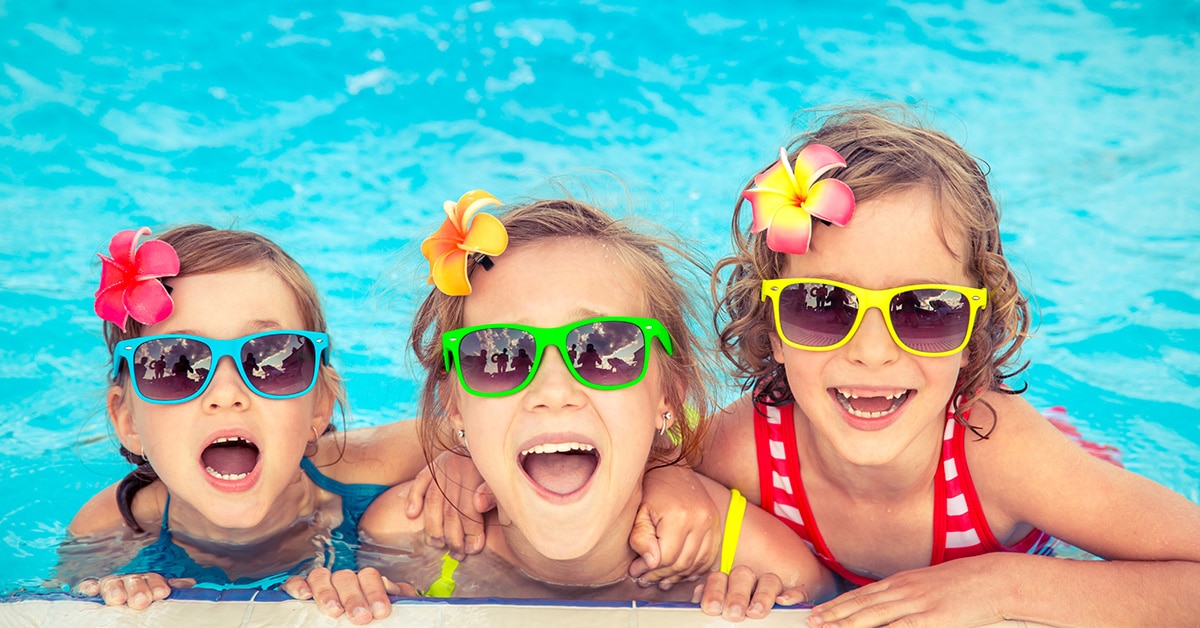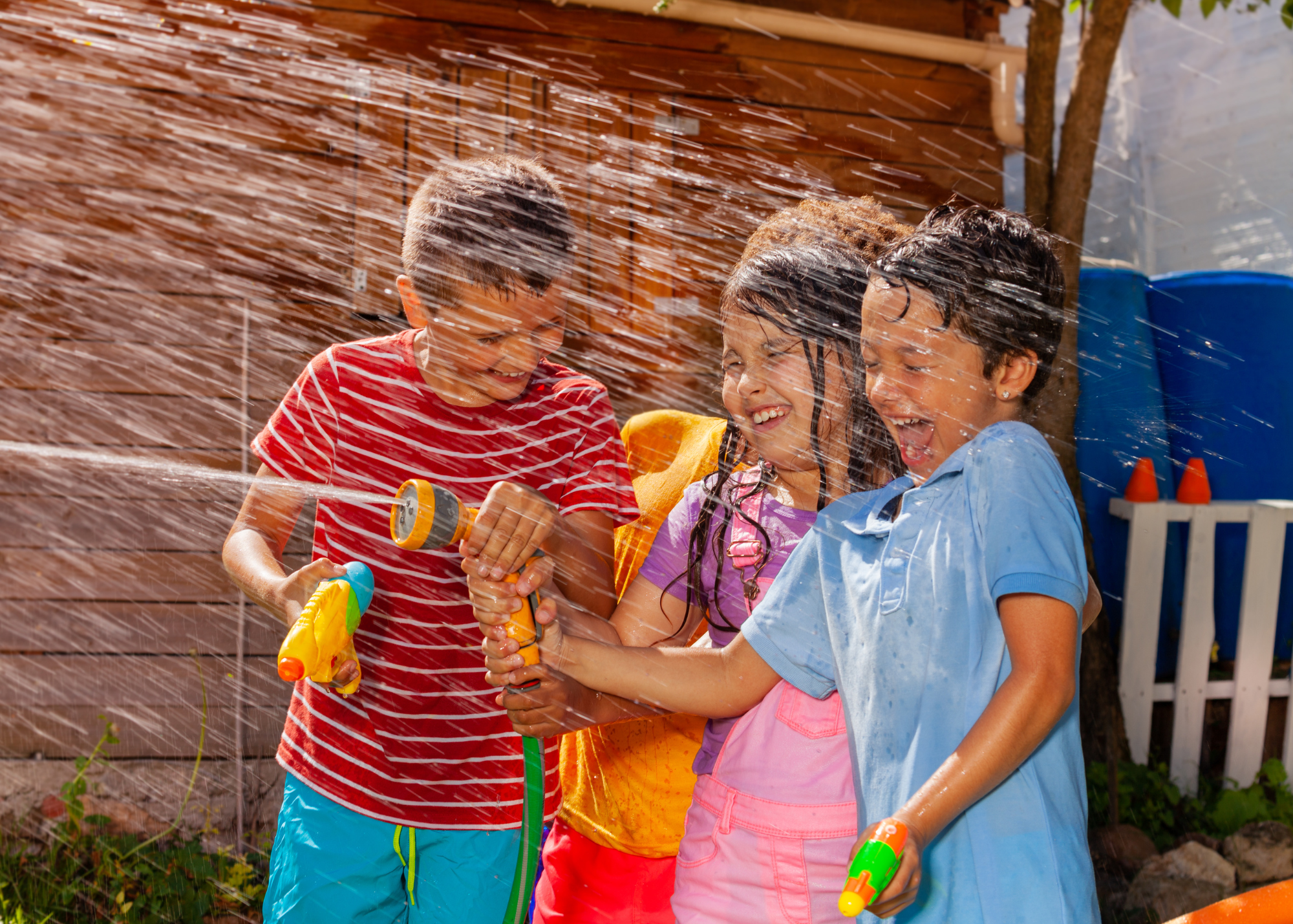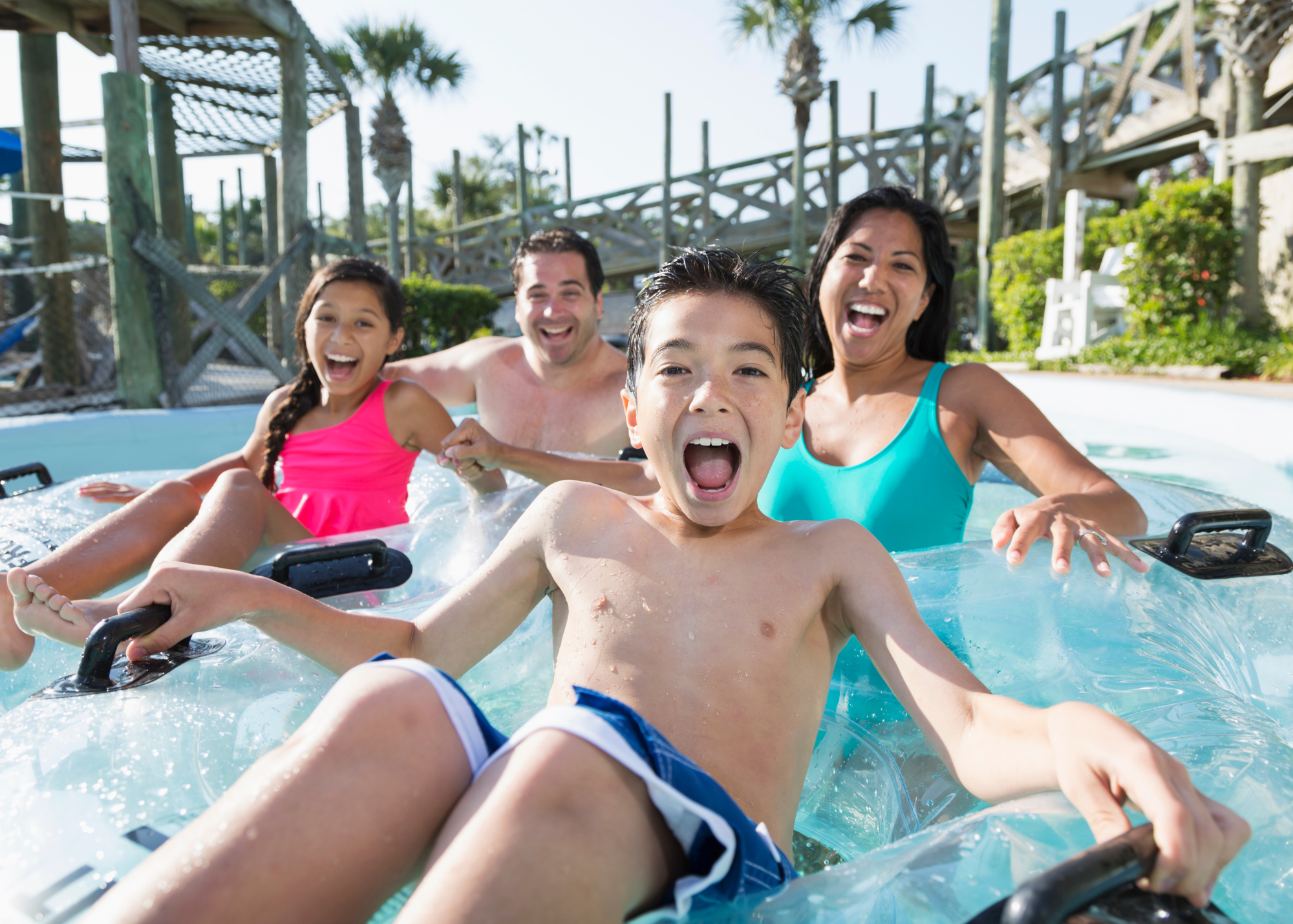
Urgent Care for Children’s Top 13 Tips for Summer Water Safety
Whether you’re heading out to enjoy your favorite water park, having fun at the pool with friends and family, or relaxing with grandad at his favorite fishing hole, summertime presents plenty of fun-filled water activities. With temperatures across the southeast already hitting the high 90’s and above…we know many of our Urgent Care for Children families will be making a splash to beat the heat this summer, we want you to have a great time and remain safe.
Water Park Safety
There are over 30 water parks sprinkled across Alabama, Tennessee and Louisiana these hot spots are certainly favorites. Yet, there are some important rules to keep in mind when visiting indoor or outdoor waterparks.
- Know and discuss the importance of water park rules with your children. Waterparks are filled with exciting features, and your little one may become extremely excited once they arrive, so talk about the rules & expectations before your trip and remind them once you arrive. Much like any amusement park, pay close attention to posted size and weight restrictions. These boundaries are in place so that riders who are too small are not injured by being thrown off or those that are larger than recommended do not build up too much speed or become stuck in a chute. It may seem like fun to ride down a waterslide head first, but the “feet first” rule is a protective measure that must be followed because water depths can be deceiving and this simple rule minimizes the risk of concussion and spinal injury.
- If your child has not had swim lessons, you may want to consider signing your child up for lessons with a certified water safety instructor. These lessons can help teach your child how to tread water if they need to, and proper breathing techniques if the water goes over their head, as can happen on some attractions like wave pools. In fact, wave pools are the water park feature that carry the biggest drowning risk. Though lifeguards are present, with so many people bobbing in the pool it can be difficult to spot when a child is struggling or just having fun splashing. Therefore, parents or guardians should remain in arms reach of young children or weaker swimmers at all times. You might also find a life jacket useful for your child’s safety.
- Such swimming-related illnesses as E.coli (Escherichia coli) and Crypto (Cryptsporidium) are risk factors in public pools and water parks. Studies show that Crypto has a particularly high tolerance to chlorine allowing the parasite to survive for long periods in chlorinated swimming pool water. Contracting E.coli or Crypto can make your child very ill and can lead to hospitalization. Teach your child to keep pool water out of their mouth; according to the Centers for Disease Control and Prevention (CDC), most people have about 0.14 grams of feces on their bottoms that can rinse off and contaminate water leading to these water-borne illnesses. Take breaks for clean drinking water and bathroom breaks at least once an hour. It is recommended that you check your baby’s swim diaper every 30-60 minutes. Shower before and after swimming, it’s a good practice to rinse bacteria from skin and help reduce contamination. If your child is ill, especially if they are having a bought of diarrhea do not visit the water park.
Pool Safety
Drowning is the number one cause of accidental death in children one to four years of age. Adolescents, 15 to 19 years old have the second highest fatal drowning rate out of any age group. Toddlers are innately curious and can wander away from a guardian while older teens may overestimate their swimming skills and take more risks, so it is necessary to take precautions with children of all ages around swimming pools.
- Use “touch supervision” when your toddler is near or in a pool, meaning that non-swimmers are within arms reach of a caregiver at all times, including while playing in “kiddie pools.”
- Keep personal pools surrounded by a 4ft high fence with a self-locking fence to keep curious toddlers out of the pool unsupervised. Empty kiddie pools when not in use so toddlers are not tempted to use them while unattended.
- Put all pool toys away when not in use, to deter little ones from trying to reach for one and possibly falling into the pool.
- If you are able to give your child swim lessons from a certified instructor, please do.
- While teens are exerting their own independence, it is important to keep an eye on them even if they have had swimming lessons. Most childhood drownings happen when there is no adult supervision. Please read this helpful drowning prevention Q&A to learn the signs of drowning and other safety resources for your family.
Boating and Swimming in Lakes, Rivers, and Other Natural Water
The adventure of being on the open water can be a wonderful experience for kids and teens alike. Nevertheless, there are some hidden hazards associated with this exploration. In fact, the rate of fatal drownings in natural water for adolescents 15 to 17 years old is more than 3 times higher than for children five to nine years old. Natural water environments are vastly different than the familiarity of a pool. Open water currents, drop-offs, rocks, trash, debris, weeds, stumps and muddy bottoms can hinder safety and enjoyment in this natural setting.
- Anyone boating should wear a properly fitted life jacket, floaties, such as tubes and air mattresses are toys and are not good substitutes for a life jacket.
- When boating, make sure engines are off prior to anyone entering the water to avoid dangers from propellers and carbon monoxide.
- Stick to designated swim areas and pay close attention to safety signage and identified depths.
- It is helpful for everyone to have CPR training, especially if there is no lifeguard in the area. Having someone in a swimming group or on a boat who is certified in CPR is recommended.
- When older teens are not closely supervised, encourage them to swim in pairs.
Have fun playing in the water this summer! As always, Urgent Care for Children is standing by to deliver quality care in 20 convenient locations near you in Alabama, Louisiana and Tennessee.



